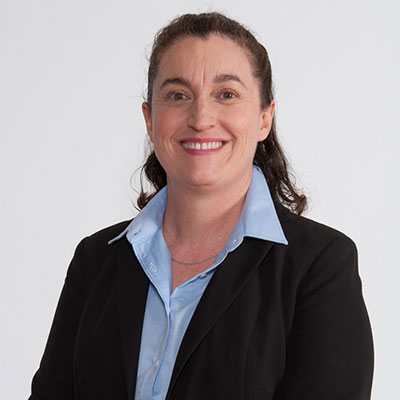Financial Planning
Advance your career as a financial adviser with a FASEA approved program
The University of South Australia is one of the first institutions nation-wide to offer financial planning programs and courses approved by FASEA.
The financial services profession introduced new education standards in 2018, making it more important than ever for practising and aspiring financial advisers to hold a recognised qualification.
If you’re currently working in financial planning, you’ll need to complete a Treasury-approved program by 2026 to continue practising. If you’re looking to enter the industry, you’ll now need to study a Treasury-approved program to start your career.
Our FASEA approved qualifications include:
- Bridging courses
- Master of Finance (Financial Planning)
- Graduate Diploma in Financial Planning
- Bachelor of Business (Financial Planning)
We also offer a Graduate Certificate in Financial Planning as a pathway into the master’s degree.
Our degrees and courses are designed to meet industry requirements and cater to all levels of experience, with the flexibility to study full-time, part-time, at UniSA’s City West Campus, online, or in mixed mode. You may also be able to study some courses in intensive mode.
In consultation with our expert academics and Treasury, we’ve outlined everything you need to know to help guide you to the study option best suited to you.
How do I become a licensed financial adviser?
Use the interactive table below to view our recommended education pathways based on industry requirements.
Are you an existing adviser?
-
NO
Do you have a previous qualification?
-
NO
I'm not an existing financial adviser and I have no previous qualification...
- With a minimum of 5 year's industry experience in a related financial services role:
Graduate Certificate in Financial Planning (as a direct entry pathway into the Master's) - With no industry experience:
Bachelor of Business (Financial Planning)
See the program table below to select a study option based on your learning needs and lifestyle preferences.
- With a minimum of 5 year's industry experience in a related financial services role:
-
YES
I'm not an existing financial adviser but I have a previous qualification...
- With a relevant degree:
Graduate Diploma in Financial Planning - With a non-relevant degree:
Master of Finance (Financial Planning)
See the program table below to select a study option based on your learning needs and lifestyle preferences.
- With a relevant degree:
-
NO
-
YES
Do you have a previous degree qualification?
-
NO
I'm an existing financial adviser with no previous qualification...
- Graduate Diploma in Financial Planning*
See the program table below to select a study option based on your learning needs and lifestyle preferences.
-
YES
I'm an existing financial adviser with a previous qualification...
- With an approved degree or relevant degree:
Bridging course/s^ or Graduate Diploma in Financial Planning* - With a non-relevant degree:
Graduate Diploma in Financial Planning*
See the program table below to select a study option based on your learning needs and lifestyle preferences.
- With an approved degree or relevant degree:
-
NO
In addition to new education standards, financial advisers are required to meet professional requirements set by Treasury. This includes completing a Professional Year (for new entrants only), passing a national exam, undertaking Continuing Professional Development (CPD), and completing a code of ethics course.
Definitions
Existing adviser: Any person who was ‘current’ on the ASIC’s Financial Advisers Register, or who provided personal advice in a foreign country to retail clients in relation to relevant financial products at any time between 1 January 2016 and 1 January 2019 (and was not prohibited from providing advice on 1 January 2019).
New entrant: Any person who does not meet the above definition of an existing adviser.
Relevant degree: An AQF 7, 8 or 9 qualification that contains at least 8 courses in one or more of the designated fields of study (and in any combination) – financial planning, accounting, taxation law, finance law, finance, business law, investments, estate law, banking, and economics.
Non-relevant degree: An AQF 7, 8 or 9 qualification in any field of study different to the areas listed under Relevant degree.
Approved degree: A degree that is listed in the Corporations (Relevant Providers Degrees, Qualifications and Courses Standard) Determination 2018 – a Treasury-approved AQF 7, 8 (Graduate Diploma) or 9 qualification.
^The number of bridging courses required is dependent on prior learning and Treasury-approved professional designations. You may also be able to transition into a qualification and graduate with a degree.
*Credit is available for prior learning and Treasury-approved professional designations.
Study options
| Qualification | Treasury- approved program | Mode of study | Start date | Duration full time (or part time equivalent) | Previous qualification required | Previous industry experience required | Credit available |
|---|---|---|---|---|---|---|---|
| ✔ |
100% Online |
varies | Based on individual requirements | ✔ | ✔ | ✔ | |
| Master of Finance (Financial Planning) | ✔ | On-campus/Online | Feb, Aug | 2 years or 1.5 with Advanced Standing* | ✔ | ✔ | |
| ✔ |
On-campus/Online |
Feb, Aug |
1 year | Previous qualification and/or industry experience. | ✔ | ||
|
As a pathway option: |
On-campus/Online |
Feb, Aug |
6 months | Previous qualification and/or industry experience. | |||
| ✔ |
On-campus/Online 100% Online |
Feb, Aug Jan, Apr, Jun, Sept |
3 years | ✔ | |||
| Fast-track to Masters packaged degrees (with Financial Planning) |
✔ Financial Planning degree only |
On-campus/Online | Feb, Aug | 4 years | ✔ | ||
Undertaking your degree on campus/online offers you the flexibility to study in mixed mode and choose how you learn based on your individual needs.
Bridging courses
If you are an existing financial adviser and have previously studied an approved or relevant degree, you may only need to complete a selection of remaining courses to meet Treasury education requirements.
We offer three Treasury-approved bridging courses you can study as standalone, 100% online courses based on your prior learning and Treasury-approved professional designations. Depending on your individual circumstances, you may need to undertake one, or all, of these courses.
Bridging courses offered include:
- Ethics and Professionalism
- Financial Advice Regulatory and Legal Obligations
- Behavioural Finance Client and Consumer Behaviour
Each course is equivalent to one 4.5 unit postgraduate course.
+The number of bridging courses required is dependent on prior learning and Treasury-approved professional designations.
*If you hold a relevant undergraduate qualification, you may be eligible to fast track your studies and enter with 18 units of Advanced Standing, allowing you to complete the program in 1.5 years.
^You will need to study our Treasury-approved master’s program following completion of the graduate certificate to meet education requirements.
Examination support
As part of your studies, you’ll have the opportunity to access exam preparation resources or workshops so you feel confident and prepared for your university and Treasury exams. We’ll provide you with useful strategies, tips and support – all the information you need to succeed.
Career opportunities
The financial services sector plays a critical role in the nation’s economy, and the financial wellbeing of all Australians.
With a qualification from UniSA, you’ll meet Treasury's education requirements to practise as a financial adviser across a diverse range of roles in areas including financial planning, investment, insurance, superannuation, estate planning and more.
Industry facts
- The main topic areas of financial advice clients seek are superannuation and investment advice, loans and investment advice, self-managed superannuation fund advice, and tax advice.
Financial Services Royal Commission, Some Features of the Australian Financial Planning Industry, Background Paper 6 (Part A), 2018. - Australia’s financial services sector is the largest contributor to the nation's economic growth.
Financial Services Council. State of the Art 2019.







